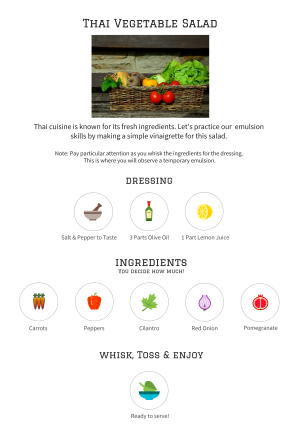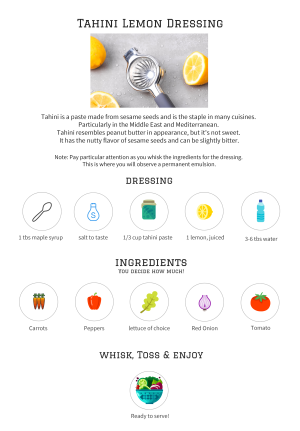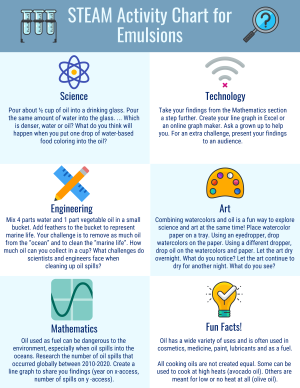The Science of Emulsions
Learn the Basics of Emulsion and Its Connection to Asian Cooking
Emulsion is a science term for a combination of two liquids that do not usually mix, such as oil and water.
In cooking, you can just mix the liquids together really well through whisking, blending, or strong shaking. This breaks the water into teeny tiny droplets that get suspended within the oil, this is known as a temporary emulsion. A temporary emulsion is a blending of ingredients that eventually separate.
You can also add another ingredient called an emulsifier before you mix. Egg yolks, mustard, and honey are examples of emulsifiers. They help the two liquids get along better. Creating recipes through this method is called a permanent emulsion because the ingredients come together and do not separate.
The most common emulsions are salad dressings. Simple dressings that are made from oil, water and seasonings are temporary emulsions, which is why they must be given a good shake before using so that the ingredients mix together. Dressings that use eggs or dairy products as a base, such as ranch, Caesar or blue cheese, are permanent emulsions that do not need shaking before use.
Let's explore both temporary and permanent emulsions and how they can enhance simple Asian recipes. Get your taste buds ready for some fun!
Don't forget to try out the activities featured in our STEAM Activity Chart to extend your knowledge about emulsions.
PDF Resources



